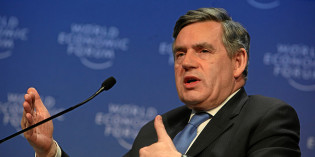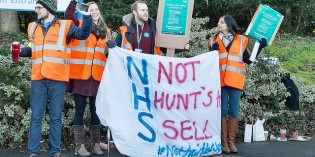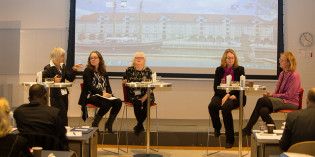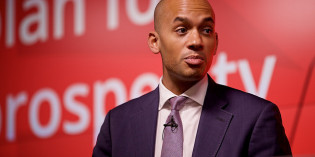Informing and engaging citizens

Studies of turnout as a ‘habit’ seem to overestimate the significance of self-perpetuation of electoral participation
Electoral participation is frequently discussed as a ‘habit’ formed during a citizen’s young adulthood but there is debate over how this develops. In a recent study, Maciej A. Górecki explored the mechanism that lies behind the process of ‘habit formation’. His findings challenge ideas that voting habits are shaped by early experience of participating in […]

Political parties do represent their voters, but the degree of representation varies across issues and parties
Politicians are frequently castigated as being ‘out of touch with voters’, with populist movements of both the left and the right prospering in recent years at least in part due to this perception. But how valid is it? Russell Dalton looks at European political parties and in his study found that, on the whole, political […]

The junior doctor contract: The BMA must pick up the pieces and move forward
The latest episode of the four year battle between the Government and the British Medical Association (BMA) serves as stark reminder of the loneliness of ministerial office. But, argues Tony Hockley, in the end the buck really does stop with the Secretary of State. If the BMA works with the Health Secretary they could make further progress on […]

In a world in which ‘everyday sexism’ remains rife, progress on gender discrimination will require quotas
As our recent Audit of Democracy post by Sonali Campion and the DA team showed, the UK continues to exhibit large disparities in power and representation between men and women. Here, Nicola Lacey of the LSE’s Commission on Gender, Inequality and Power shares findings from the commission’s final report, and recommends that quotas – particularly when […]

Book Review: Campaign Finance and Political Polarization: When Purists Prevail by Raymond J. La Raja and Brian F. Schaffner
Is there too much money behind US political campaigns or is it more a question of where the money flows? In Campaign Finance and Political Polarization: When Purists Prevail, Raymond J. La Raja and Brian F. Schaffner present their argument in favour of giving more, rather than less, money to political parties in order to reduce […]

Interview: Alon Peled on open data, incentives, and ‘Traversing Digital Babel’
Governments across the world have attempted to improve their capacity for open data, with the UK improving its efforts since the turn of the decade markedly. Last year, Sean Kippin interviewed Alon Peled, an academic and computer software expert who has created an incentive-based system and programme for governmental informational sharing which he claims holds […]

The concept of class is absent from political debate, even as inequality in Britain reaches new heights
In a recent statement, Labour’s Chuka Umunna seemed to suggest the BAME population form one homogeneous political group in the UK. Sean Swan argues this view is not only inaccurate but it perpetuates the perceived significance of ethnicity and diverts attention from more rational political cleavages. He writes that if Labour is to compete effectively […]

A two-way street: how to make immigration work
Opponents of immigration have two main concerns: that immigrants are bad for our economy because they force wages down, and bad for our culture for they are at odds with our liberal views. Here, Randall Hansen writes that anti-liberal attitudes need to be challenged whatever their source – minorities who oppose liberal values or Europeans […]

How democratic are the UK’s political parties and party system?
As part of the 2017 Audit of UK Democracy, Sean Kippin, Patrick Dunleavy and the DA team examine how democratic the UK’s party system and political parties are. Parties often attract criticism from those outside their ranks, but they have multiple, complex roles to play in any liberal democratic society. The UK’s system has many […]



 Democratic Audit's core funding is provided by the Joseph Rowntree Charitable Trust. Additional funding is provided by the London School of Economics.
Democratic Audit's core funding is provided by the Joseph Rowntree Charitable Trust. Additional funding is provided by the London School of Economics.